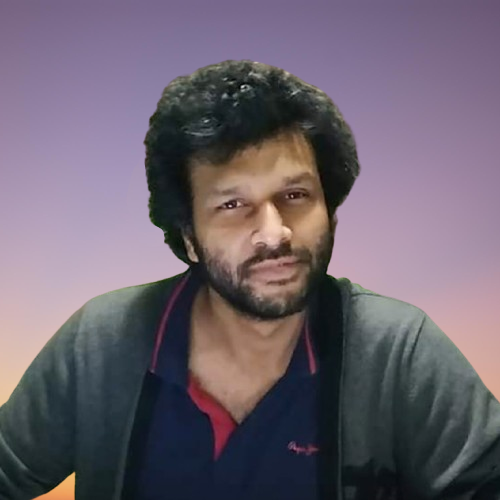Reportage

As New Zealand reeled from its worst-ever act of terrorism, before all eyes could even turn to the role of Prime Minister Jacinda Ardern, it was she who stepped up to take the initiative, speaking within hours of the incident, indeed while the police still had it down as an 'unfolding situation', to condemn the act of terror that had brought about "one of New Zealand's darkest days".
It is difficult to overstate how unprepared New Zealand was for the tragedy that unfolded last Friday. The country ranks consistently as one of the most peaceful countries on Earth. Last year it was ranked second in the Global Peace Index, a list compiled by the Institute for Economics and Peace in collaboration with the Economist Intelligence Unit that ranks countries by their 'absence of violence' and takes many factors into account including levels of violent crime, potential for terrorism, political stability and the number of wars fought.
The last (the only) mass shooting of note took place in 1990, known as the Aramoana Massacre in which 14 people were killed (including the perpetrator) in a seaside township just north-east of Dunedin. As far as acts of terror go, it is the sinking of the Rainbow Warrior, a vessel used by environmental activists Greenpeace in their various anti-whaling, anti-seal hunting, anti-nuclear testing campaigns in the Seventies and Eighties till the French secret service bombed it while it was docked at the Port of Auckland on July 10, 1985.
So when the news broke of a US-style shooter letting loose with multiple firearms on scores of worshippers in two different mosques, the sheer scale of bloodshed far eclipsing anything seen before on those idyllic shores, it could've been easy to panic; or to get tongue-tied. Usually, and this may be particularly true in the case of male leaders, we tend to see an overemphasis on putting up the front of a "strong response", that predictably gives way to showmanship and bravado and gross neglect of the correct response.
Ardern was none of those things. In the first 24 hours following the attack, she had called out the act for what it was (terrorism), assured her nation that the (long overlooked) gun laws that had allowed it to happen would change, reassured the country's migrant communities that "New Zealand is their home - they are us", and without sounding too impolite, told Donald Trump that the only thing she needed from him was "sympathy and love for all Muslim communities."
It was undeniably a new style of leadership that the world was witnessing in a crisis fraught with the possibility of flaring more tensions. Ardern wasn't afraid to look vulnerable at a time of unspeakable tragedy, but by backing it up with a clear-eyed diagnosis and steely resolve to fix what had caused it, or at least what had contributed to it, she came across as utterly human and a fount of level-headed compassion. She was her country's rock, as well as its shoulder to cry on. Not bad for a 38-year-old!
A long way from 'Jacindamania'
Ardern was elected prime minister in October 2017, at the head of a coalition between her left-wing Labour Party and the populist, anti-immigration NZ First. She had only taken over as Labour leader three months earlier, at which point it was trailing so far in the polls that it looked doubtful it could cobble together a coalition government, let alone score anything close to a majority. In a poll before Ardern took over, the party's support had plunged to less than 25 percent, a 20-year low. Months later, as "Jacindamania" gripped the nation, it surged to over 40 percent.
While she would eventually have to rely on NZ First and the Greens for support, Ardern succeeded in boosting Labour enough to make her the world's youngest serving female leader, and end a decade of control by the conservative-leaning National Party. Since then she has occupied a role unfamiliar to most New Zealand leaders: Global celebrity.
She became the first world leader in nearly 30 years to give birth in office (the last one was Benazir Bhutto), and then by taking her three-month old daughter Neve to the United Nations General Assembly, where Neve looked on as her mother addressed the assembly while partner Clarke Gayford, whom the couple say is the main caregiver for their daughter, held the baby.
Speaking to CNN after her address, Ardern said she wanted to "normalise" the idea of being a working mother. Since coming to power, she has presented an image in stark contrast to leaders of many large Western nations. As countries, including the United States, have attempted to keep migrants out, Ardern has actively sought to bring them in. Hers has been a message of unremitting love and openness and understanding between all peoples, and at a time when leadership would seem to have gone missing in many places, or degraded into demagoguery, she reminds us how leaders are still best-placed to inspire hope for a better tomorrow. And we salute her for it.

























Leave a Comment
Recent Posts
Pedaling Through the Mangroves ...
The journey from the bustling streets of Barishal to the serene, emera ...
Why the Interim Government mus ...
Two weeks out from what is expected to be a red letter day in the figh ...
Doesn’t matter who thinks what about Bangladesh deci ..
The Other Lenin
US President Donald Trump said his administration
Govt moves to merge BIDA, BEZA, BEPZA, MIDA